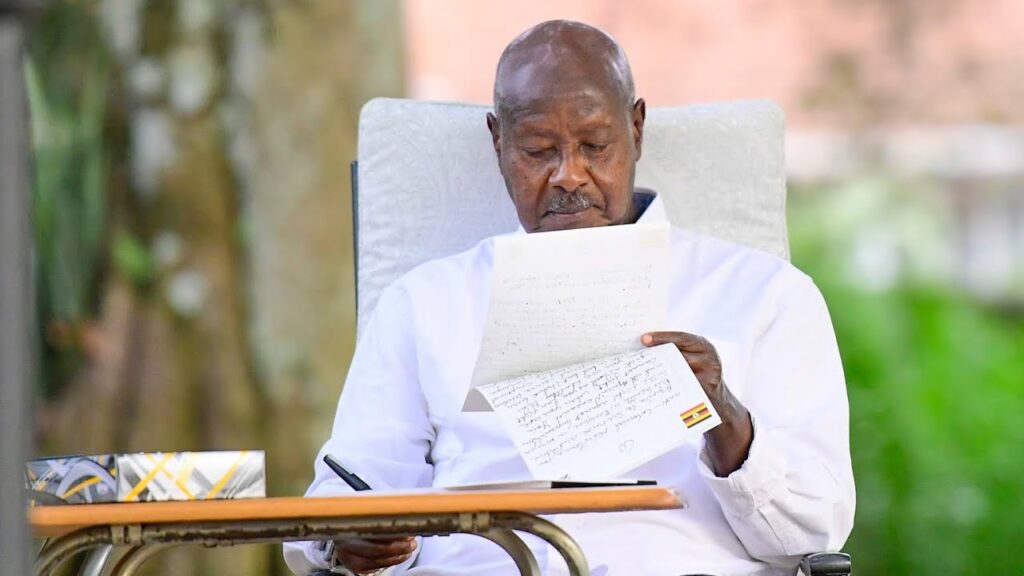President Yoweri Kaguta Museveni has directed government ministries to halt scattered budgeting and instead concentrate resources on critical infrastructure such as roads, electricity, security, and wealth creation.
In a detailed national address released Tuesday, Museveni cautioned against the persistent budgeting mistake of “okumemerera” — spreading limited resources thinly across many sectors — which he said leads to inefficiency and stalled progress.
“Trying to be everywhere at the same time and ending up being nowhere; trying to do everything at the same time and ending up doing nothing properly,” the President said, describing the dangers of scattered government planning.
Drawing on the National Resistance Army’s (NRA) successful strategy of “kamu kamu gwe’mugaanda” (one by one makes a bundle), Museveni explained how the military’s deliberate prioritization of weapons and personnel over luxury had delivered lasting results. He criticized earlier administrations for spending on non-essentials like posh barracks and personal cars instead of strengthening core capacities.
The President cited examples of past road and energy projects that stalled when foreign donors unexpectedly withdrew funding. These included the Kampala-Masaka road, Kampala-Mityana road, and the Kilak-Patongo-Kalongo-Abim power line. As a result, Museveni said Uganda was forced to adopt a self-reliant strategy focused on gradual but deliberate investment in priority sectors.
“I told our people to forget about the donors and build our country using our scarce resources and the NRA strategy of ‘kamwe kamwe,’” he stated.
Between 2008 and 2019, the budget for roads and electricity saw significant increases. The road budget rose from Shs 374 billion to Shs 6.4 trillion, while the electricity budget increased from Shs 133 billion to Shs 3 trillion.
Museveni credited this focused investment for eliminating nationwide electricity blackouts and expanding access to all districts, except Buvuma and Obongi. The same strategy delivered key roads such as Soroti–Moroto, Olwiyo–Kitgum, Musita–Busia, and several others initially abandoned by donors.
Despite these gains, Museveni expressed concern that under-budgeting had returned in some areas, leading to deteriorating roads like Mukono–Jinja and Ibanda–Mbarara. He categorized national roads into three types: well-maintained roads, deteriorating roads needing urgent attention, and local government roads, whose quality depends on how effectively local planners use the Shs 1.3 billion maintenance fund.
The President confirmed that the Ministry of Works requires at least Shs 3.21 trillion annually to maintain road infrastructure, excluding other large-scale projects such as Uganda Airlines and the Standard Gauge Railway. He instructed the Ministry to correct the imbalance and warned against placing non-essential expenditures ahead of core infrastructure needs.
“Targeting cities, new districts, or higher pay for civil servants before securing money for roads, electricity, and security is bad planning,” Museveni warned.
He also hinted at possible cost inflation in road projects, promising further updates: “Stay tuned on this channel. We may get some additional information.”
Museveni concluded by encouraging a return to strategic discipline in budgeting, guided by lessons from the NRA’s long-standing approach.

